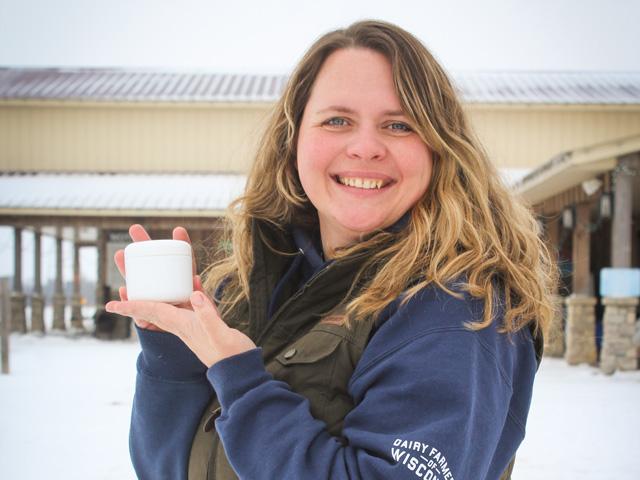Gearing Up for 2018 Farm Bill
Groups See Changes Needed for Some Safety Net Programs
WASHINGTON (DTN) -- While farmers and much of the country may be mesmerized by this year's presidential politics, farm groups are turning more attention to planning for another farm bill in 2018 -- ideally one that goes smoother in Congress than the 2014 bill did.
Farm lobbies are getting together informally and holding more forums to revisit the issues facing producers in various commodities. On Tuesday, the American Soybean Association held a panel discussion on the prospects of a 2018 farm bill with representatives from the National Cotton Council, National Milk Producers Federation and United Fresh Produce Association.
Increasingly, all groups involved in the farm bill said they face the challenge of trying to protect the programs farmers rely on while dealing with a budget environment in Congress that is constantly demanding cuts to overall spending.
Prior to the 2014 farm bill, farm groups were divided about commodity programs, and the rural-urban ties of protecting nutrition and commodity programs were broken when House conservatives pushed to split the farm bill into two different pieces of legislation. Early talks are already starting to try to avoid such division the next time around.
"There is a renewed spirit in agriculture that we are going to sink or swim together," said John Hollay, vice president of government relations for the National Milk Producers Federation.
Much like before the last farm bill, dairy producers again are challenged with low prices, and the Margin Protection Program created in the 2014 farm bill hasn't provided the safety net dairy farmers had hoped for, Hollay said. The Margin Protection Program was designed to pay producers based on a formula looking at milk prices compared to feed prices. The basis for the program may be sound, but the formula needs adjustments to better help farmers, Hollay said.
"Unfortunately, the program has not made payments that has benefited our farmers in these times," Hollay said.
P[L1] D[0x0] M[300x250] OOP[F] ADUNIT[] T[]
Hollay said dairy producers operate on a delicate balance of supply and export markets. A 2% increase in production in recent years has collapsed prices for farmers, and the industry is seeing another exodus of smaller producers.
"We may not be able to wait until the next farm bill before we seek assistance for our industry," Hollay said. "So that is something we are grappling with."
Cotton producers also have struggled since giving up some key commodity programs in the 2014 legislation. Cotton prices were bullish on Tuesday, soaring to two-year highs following the WASDE report cutting global carryover in cotton and increasing projected Chinese consumption. Still, cotton future prices remain below the cost of production, said Reece Langley, vice president of government affairs for the National Cotton Council. NCC is focused on protecting the marketing loan program for producers while continuing to press Congress and USDA to designate cottonseed as an oilseed, making the cottonseed eligible for commodity programs.
"We are continuing that effort as an industry, and we are going to work toward that as we go forward," Langley said.
Hollay acknowledged the politics of farm bills are becoming more difficult with each bill. The country is becoming more urban and suburban, and fewer lawmakers make the connections between the farm and the supermarket. Hollay said milk producers will also continue to back strong nutrition programs in the farm bill that provide added markets for consumers and also give more urban lawmakers a reason to back a farm bill.
Specialty crops were a largely forgotten element in farm legislation 20 years ago, but they have increasingly gotten more attention with block grants, research and insurance options for fruit and vegetable growers. Now more than 140 groups under the umbrella of the Specialty Crop Farm Bill Alliance are already organizing to protect the gains that have been made in funding, said Robert Guenther, vice president of public policy for the United Fresh Produce Association. Guenther said specialty crop growers are hoping the next farm bill will put more emphasis on organic programs, which now take up roughly one-third of fruit and vegetable industries. Those growers also are more interested in better risk-management tools, he said.
While the American Soybean Association hosted the forum, ASA leaders themselves did not detail their issues heading into a 2018 farm bill. Still, Delaware farmer Richard Wilkins, president of ASA, said the group supports the mix of current commodity programs -- Agricultural Risk Coverage and Price Loss Coverage -- though Wilkins noted there have been some equity issues with ARC payments in parts of the country. Wilkins said the formula for ARC might need to be tweaked to be more equitable and based on realistic data.
ASA leaders also have been credited with being among the groups trying to reestablish the coalition between farm groups and backers of nutrition programs.
Rep. Jim McGovern, D-Mass., commended ASA for working to reestablish a rural-urban coalition when he addressed them Tuesday. McGovern stressed the importance of keeping nutrition programs in the farm bill. Segregating nutrition and commodity programs would kill the farm bill, he said.
"We need to fight to keep this urban-rural coalition together," McGovern said.
McGovern noted House Agriculture Committee Chairman Michael Conaway, R-Texas, has held 16 hearings so far on the Supplemental Nutrition Assistance Program (SNAP) without Conaway detailing what he would like to do with SNAP. McGovern said Conaway would lose all urban support for a farm bill if he chooses to separate the program or block grant it to states.
"If the nutrition section gets separated from the farm bill, you are never going to see another farm bill," McGovern said. He added that block granting SNAP to states "is a recipe for disaster."
Chris Clayton can be reached at Chris.Clayton@dtn.com
Follow him on Twitter @ChrisClaytonDTN
(AG/)
Copyright 2016 DTN/The Progressive Farmer. All rights reserved.



